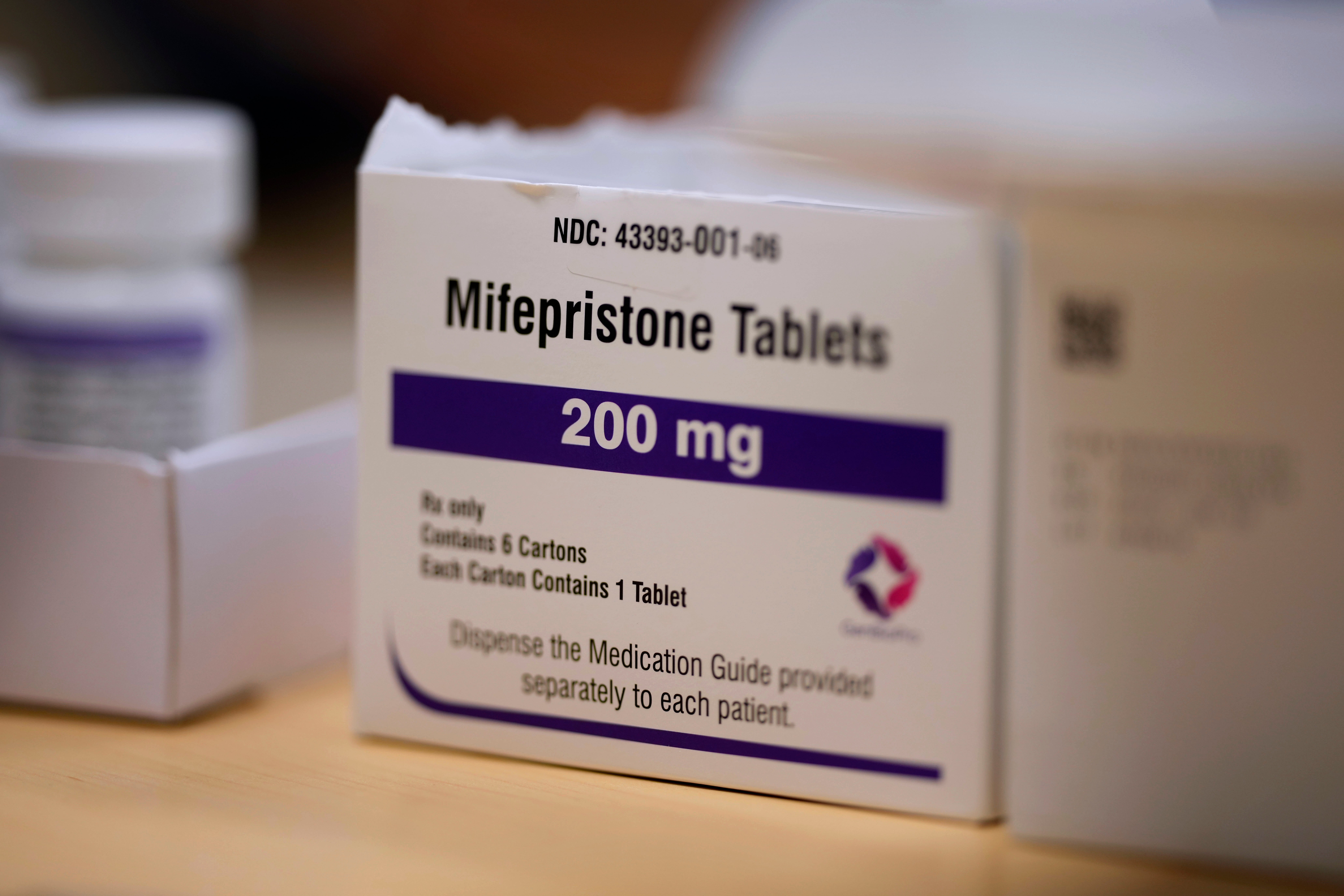Questions swirl on if Texas bill to fine people who package the abortion pill $100k is actually legal
An attorney last month described the bill as an ‘incursion on Texans’ constitutional rights’
Under a bill just passed by the Texas Senate, a private citizen can sue someone or an organization that mails, prescribes, or manufactures abortion-inducing drugs for $100,000 — but some critics question the legislation’s legality.
Abortions are banned in the state and the new bill could add more intimidation around the already stigmatized procedure.
In an expansion of the controversial pre-Roe 2021 “heartbeat” law that allowed private citizens to sue anyone who “aids and abets” or provides abortions after a heartbeat is detected, the latest legislation — SB2880 — permits private citizens to sue groups and individuals who have mailed, prescribed, paid for or distributed abortion pills — regardless of location.
The bill also allows for these parties to be sued for the wrongful death or personal injury of an unborn child or pregnant person due to the use of the medications and targets internet providers that allow Texans to access information on abortion pills.
The state Senate passed the bill on Tuesday, but not without criticism. Some argued that it’s legally dubious.
Speaking on the floor Tuesday, Democratic Sen. Nathan Johnson called the legislation a “flagrant, brazen transgression of the principles of separation of powers on which this country and state was founded.”
Last month, Veronikah Warms, a staff attorney at the Texas Civil Rights Project, labeled it an “incursion on Texans’ constitutional rights” when speaking to the Senate Committee on State Affairs.

“Under this bill, as written, a person could potentially go to prison for life for paying for a woman's sandwich while knowing that she was traveling to get a legal out-of-state abortion,” Warms said to the committee. “What is the point of having state laws defining legal content in their borders if a legislature can just decide to prosecute people for legal activity in other states? Where does that end?”
Rachel Rebouché, dean of Temple University’s Beasley School of Law, argued that SB2880 hinges on private action, much like the 2021 heartbeat law. “This is Texas legislators trying the same strategy to try to circumvent a federal constitutional challenge,” Rebouché told the 19th News.
The bill would allow anyone to sue a wide swath of the population, including loved ones of those obtaining medication abortions and support organizations, like Texas Equal Access Fund, a nonprofit that offers financial and emotional support to Texans in need of reproductive care.
If passed, “we would be worried about being subjected to harassing lawsuits that could get in the way of our work of helping people access abortion care,” Kamyon Conner, executive director of Texas Equal Access Fund, told The Independent in an email.
Republican Texas state Sen. Bryan Hughes, who authored the bill, argued it’s meant to protect women.
“These are the pills that are being mailed into Texas directly to women, often without instructions, certainly without doctors as before, and without follow-up care after,” Hughes said Tuesday. “This is illegal in Texas but is taking place, and we’ve thus far not been able to protect women.”
But Conner had a different take.
While this bill targets individuals and organizations who help women to obtain medication abortions, it’s likely to impact the women themselves too. This is especially true for low-income Texans, people of color, immigrants, young people, and rural communities “who already face the greatest barriers to health care,” Conner said.
The legislation is also likely to affect patients treating miscarriages, as both miscarriages and medication abortions often use mifepristone and misoprostol.
SB2880 could also curb some providers from wanting to help Texans, Conner added: “If this threatens out-of-state providers and they don’t feel safe, this could mean they won’t take Texas patients and it could prevent us from being able to help fund medication abortion care in other states.”
Join our commenting forum
Join thought-provoking conversations, follow other Independent readers and see their replies
Comments
Bookmark popover
Removed from bookmarks